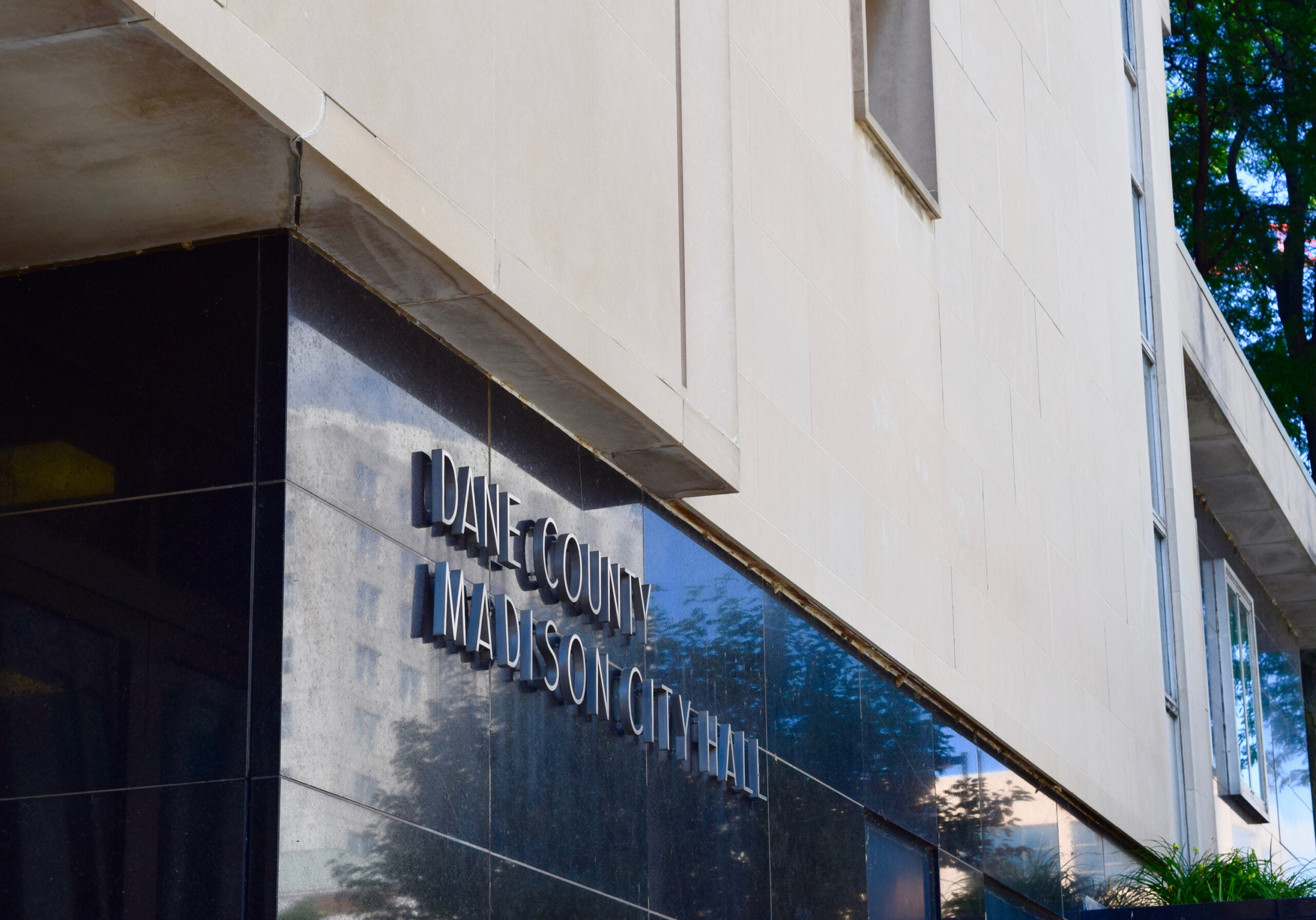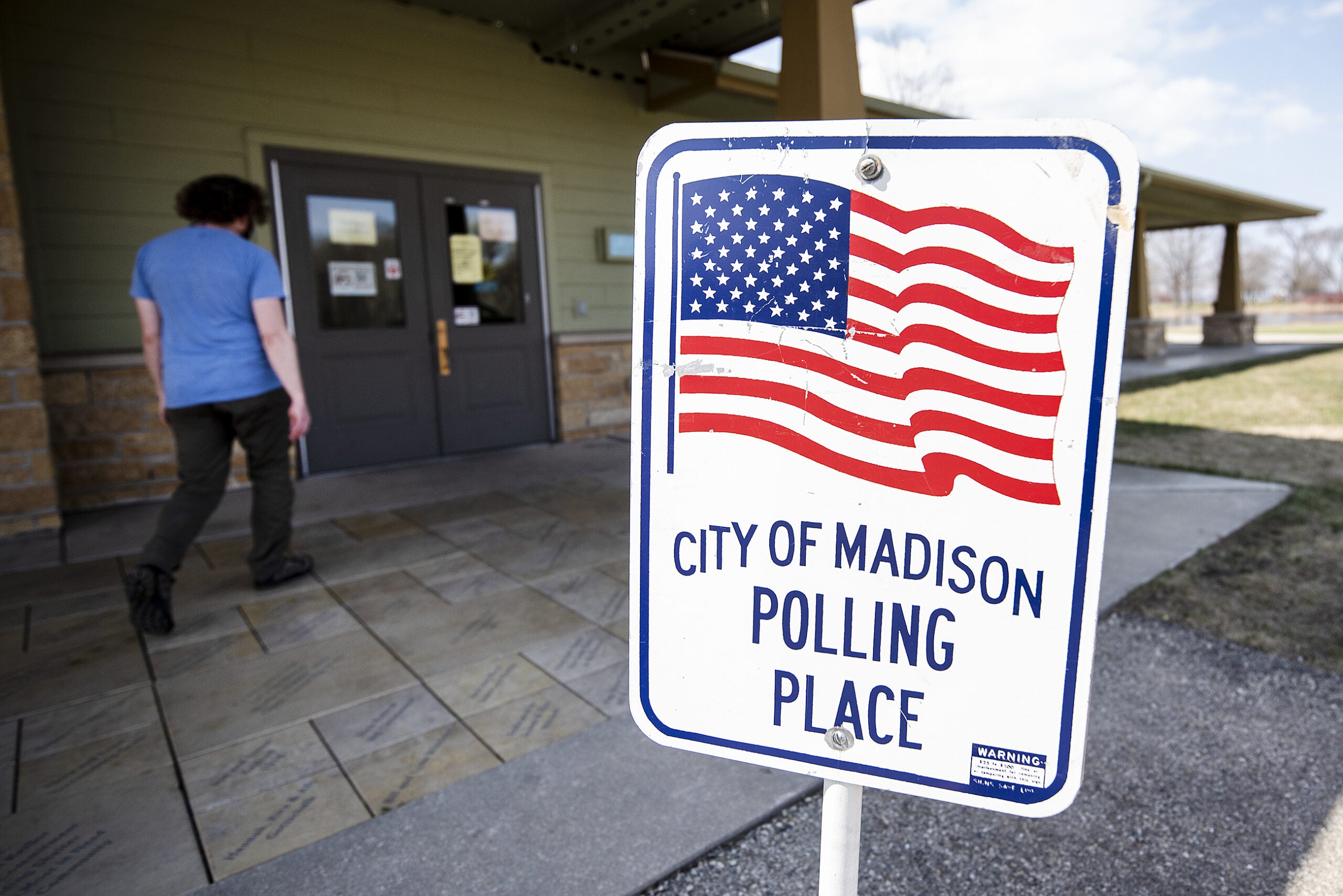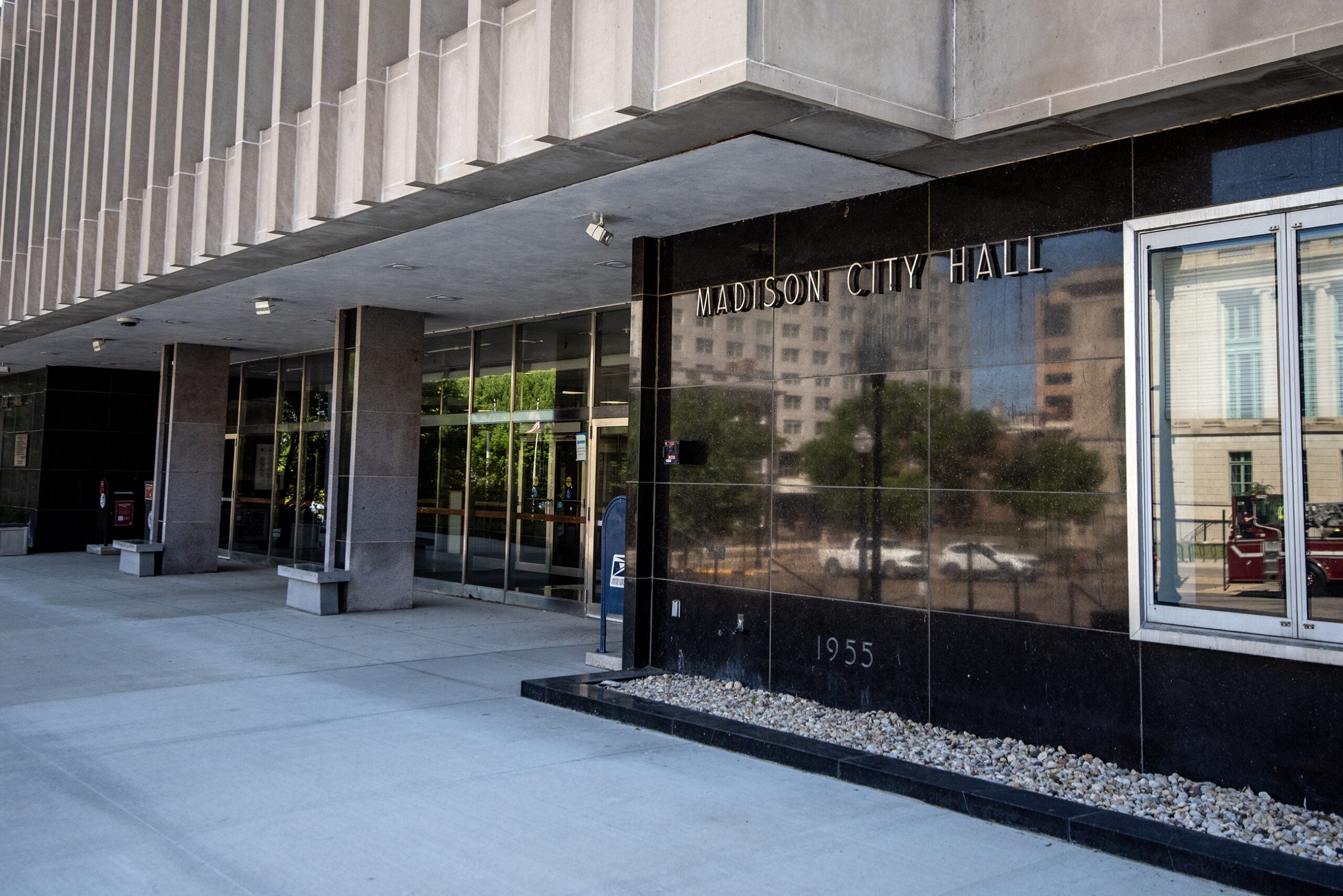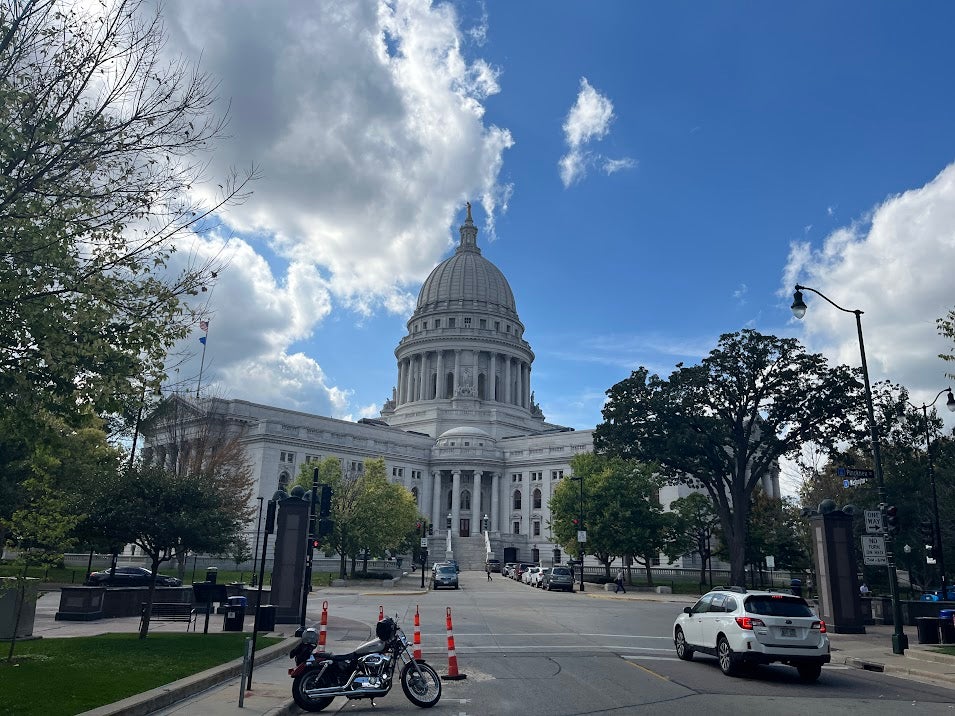A new report from the Wisconsin Policy Forum finds Madison ranks at the bottom when it comes to revenue sharing from the state.
State funding to local governments is increasing under a recently-approved state law known as Act 12, which overhauled revenue sharing to counties and municipalities.
Next year, the city of Madison is getting a $3.1 million increase in its share of the local government funding. But, at a bump of $11 per resident, Madison will see the lowest increase per capita of all of Wisconsin’s 1,848 cities, villages and towns, according to the policy forum analysis, which used data from the state’s Legislative Fiscal Bureau.
Stay informed on the latest news
Sign up for WPR’s email newsletter.
Madison is Wisconsin’s second-largest city with more than 270,000 residents. Jason Stein, a researcher with the public policy think tank, says population size is partly to blame.
“Act 12 itself really targeted its funds towards smaller communities, towns and small villages in particular,” Stein said. “They’re the ones that tended to receive the largest amounts per capita.”
On average, municipalities will see a state revenue sharing increase of $35 per resident because of the overhaul, the forum’s analysis found. That’s more than three times the per-resident increase to Madison.
In total, Madison is getting $29 per capita in 2024 municipal aid from the state. That’s close to the lowest per-person amount for any Wisconsin locality, second only to the village of Merton in Waukesha County, the Wisconsin Policy Forum found. Statewide, the total amount being awarded is an average of $142 per resident.
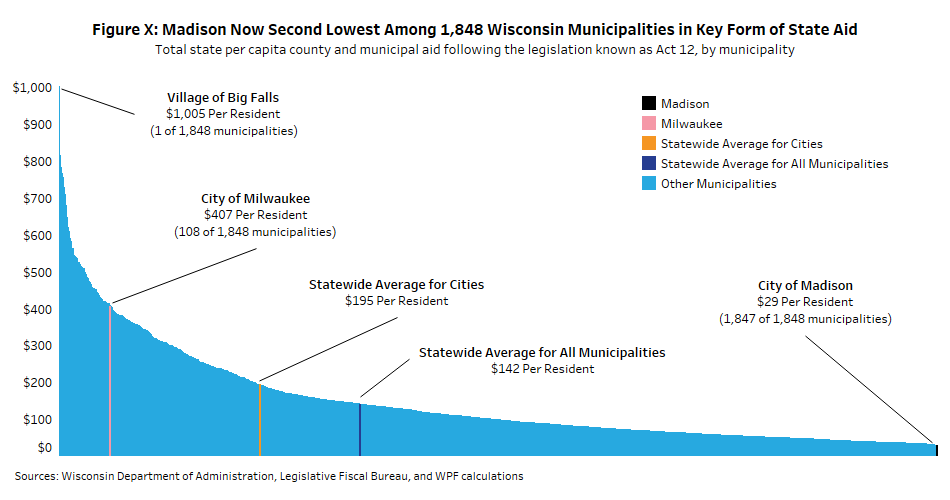
High property values influence state aid
Historically, Wisconsin’s revenue sharing formula has given more aid to communities with lower property values. Because of their higher property values, communities like Madison, Waukesha, Brookfield, Wauwatosa and some Madison suburbs receive relatively less aid.
The idea, Stein noted, is that communities should be able to leverage some of that wealth to pay for local services.
“There’s a good case to be made that the city of Madison gets a lot of indirect help from the state of Wisconsin,” Stein said. “It is the seat of state government. It is the seat of a world-class public university, and it drives tremendous benefits from having those assets in the city and so that contributes to the city having very high property values.”
Nonetheless, Stein said those financial advantages have lessened over time because of limits on the city’s ability to raise property taxes. State law generally caps a city’s levy limit, so that property taxes used for operations are tied to the rate of net new construction in the city. In Madison, the city would need voter approval to override that limit.
Madison has attracted more development than other Wisconsin cities, with a 2.2 percent increase in its new construction rate compared to the statewide average of 1.7 percent. But even in Madison, that construction hasn’t kept pace with rising costs, the policy forum found.
“The gap between the rate of inflation and gains from construction makes it difficult for Madison to sustain existing service levels,” the report said. “Absent significant fee increases or spending cuts, it may ultimately require officials to consider putting a property tax referendum to voters to exceed the state levy limits.
Madison mayor: State lawmakers ‘shortchange’ Madison
Additionally, the city of Madison lacks the authority to impose a sales tax. During a news conference announcing her 2024 operating budget earlier this month, Madison Mayor Satya Rhodes-Conway blasted state-imposed restrictions on potential revenue streams to the city.
“All of this forces a disproportionate and unfair over reliance on local property taxes,” Rhodes-Conway said. “Why? Because the state Legislature continues to shortchange Madison.”
Rhodes-Conway is asking the city’s Common Council to approve a nearly $405 million operating budget next month. The mayor’s proposal includes a 1 percent funding cut to all state agency state budgets to save about $3 million.
Officials say Madison should be able to maintain services despite that cut because agencies have consistently spent 2 to 4 percent less than their allocated budgets in recent years. The mayor’s proposal would also save $2.4 million by keeping positions vacant. The Common Council is also set to vote next month on approval of the mayor’s $267 million budget for capital projects and infrastructure.
Compared to other Wisconsin cities, Stein notes Madison enjoys financial advantages, including relatively high levels of reserve funds and a strong bond rating.
“Certainly, we’re not trying to say that the sky is falling at this moment,” Stein said. “What we’re saying is, for the city to be as healthy financially five years from now as it is today, something has got to change. Either cost has got to be kept more in check, or the city has got to come up with a source of revenue that it doesn’t have right now.”
State funding overhaul targeted aid to city of Milwaukee
For the city of Milwaukee, per-resident state aid after Act 12 was higher that the statewide average. Wisconsin’s largest city is receiving $407 per capita in total 2024 municipal aid from the state.
The overhaul, which cleared the state Legislature with bipartisan support before being signed by Democratic Gov. Tony Evers earlier this year, was partly designed to pull Milwaukee back from potential bankruptcy.
Along with a shared revenue boost, Act 12 allowed the city of Milwaukee to impose a 2 percent sales tax and allowed Milwaukee County to impose a 0.4 percent sales tax following two-thirds votes by the Common Council and county board, respectively.
Wisconsin Public Radio, © Copyright 2025, Board of Regents of the University of Wisconsin System and Wisconsin Educational Communications Board.
